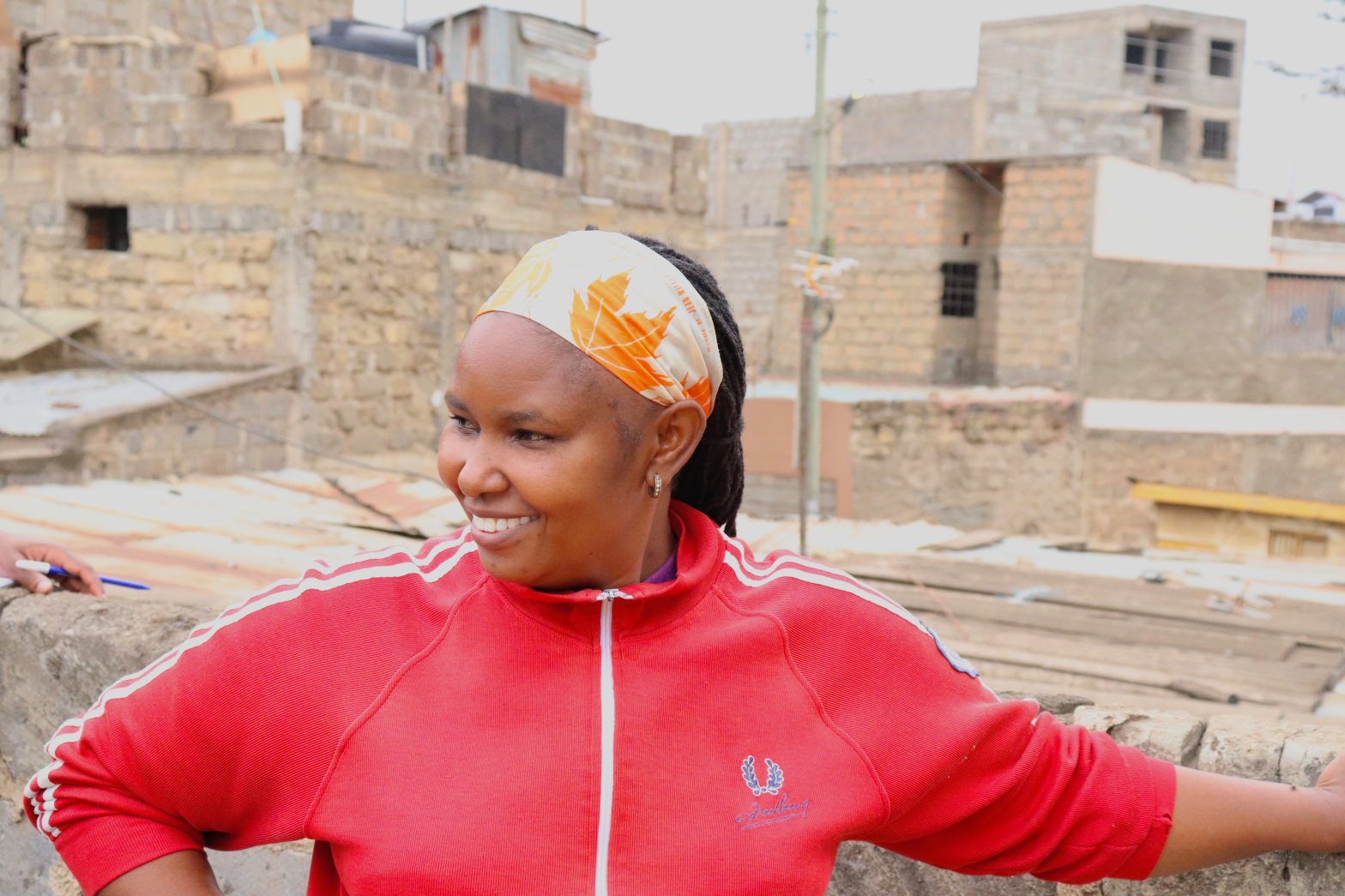
- NEFSALF
- November 13, 2023
Many urban farmers in Nairobi farm as part of a group within their community. This can provide a support system for people who share common struggles, a greater capacity to purchase expensive inputs, and can enable farmers to produce more crops which leads to higher income for all group members. Another benefit of farming in a group is the ability to share knowledge. One person’s idea or innovation can add value for everyone involved.
Susan Mugure is an urban farmer located in Embakasi Central, Nairobi. She farms vegetables and chickens within her house compound which allows her to teach her children about farming. She also farms vegetables with a group of thirteen community members (11 female and 2 male). Before she attended the Gender, Urban Agriculture and Food System (GUAFS) training at Mazingira Institute in February 2023, Susan was growing vegetables in very low quantities. She was using small sacks and buckets to grow vegetables mainly as subsistence for her family.
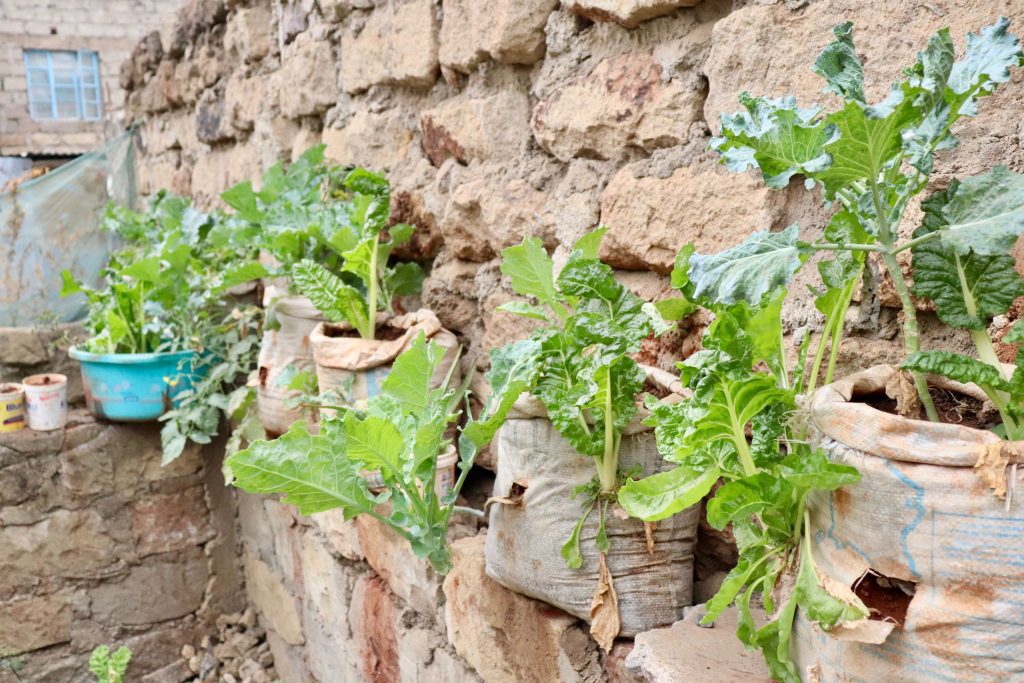
Kales growing in sacks in Susan’s house compound.
Susan was introduced to us through a Nairobi City County Food, Agriculture and Natural Resources extension officer during the pre-training phase of our first GUAFS training program, an activity of the Women’s Spaces Project. It was attended by 21 trainees (12 female and 9 male), all from within Nairobi City County. The farmers were trained in gender-sensitive urban agriculture including subjects such as crop production and management, livestock production and management, domestic food processing and organic waste management. This led to the increased capacity of project beneficiaries, especially women, to engage equally in urban agriculture and food system activities. The training enlightened her to the profitability that can be found in urban agriculture by employing the right technologies to make the most of her space. She was introduced to a variety of technologies that allow her to use space with poor-quality soil or none at all.
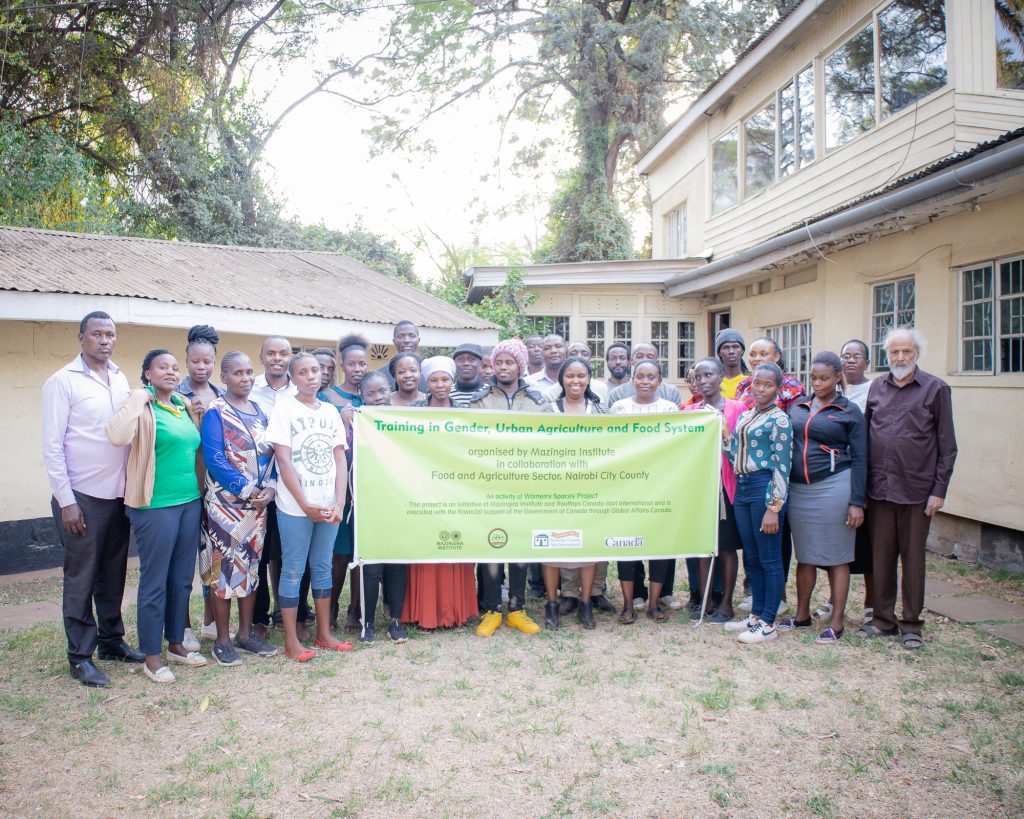
The group of trainees and trainers involved in the February 2023 Gender, Urban Agriculture and Food System training with Susan.
With this knowledge, Susan returned to her farm with a renewed passion for urban farming and immediately got to work implementing what she had learned. She shared her knowledge with her group and together they built a cone garden on a group member’s rooftop, “The training allowed me to train the group, and now each group member has a project”. This allows them to use space that would otherwise be unusable for farming purposes. The technologies Susan learned at the GUAFS training enabled her and her group to increase their crop yield. This led to an increase in income, “So, I have increased my production by farming fresh, fresh vegetables,” therefore improving the livelihoods of everyone involved.
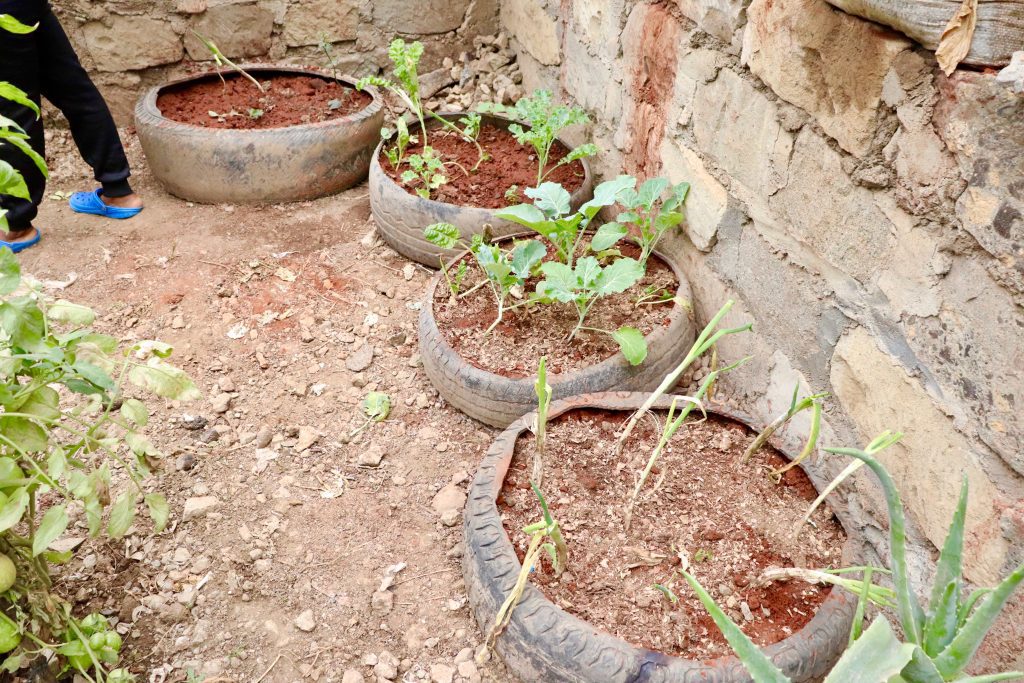
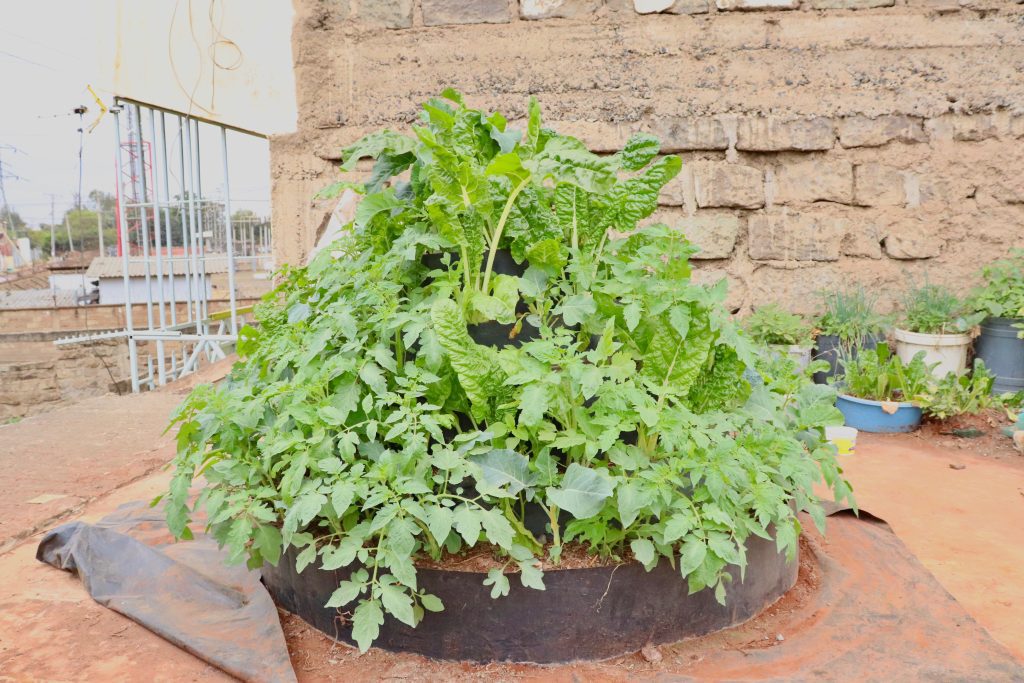
The tyre garden that Susan built after her training.
The cone garden that Susan built with her group.
It is likely that without the training, Susan’s group would not have known that they could use their rooftop to expand their crop production. She was able to open a door to new and innovative technologies that have been designed to benefit people just like Susan and her group members. She even has hopes to continue sharing her knowledge beyond her group. She now has a newfound passion and hopes to spread the benefits of growing one’s own vegetables with her community. Considering this, it is important moving forward with the Women’s Spaces Project that women who farm in groups continue to be recruited for training. This will expand the reach of the project and help more women increase their livelihoods because, through the training of one person such as Susan, a whole community can be impacted.
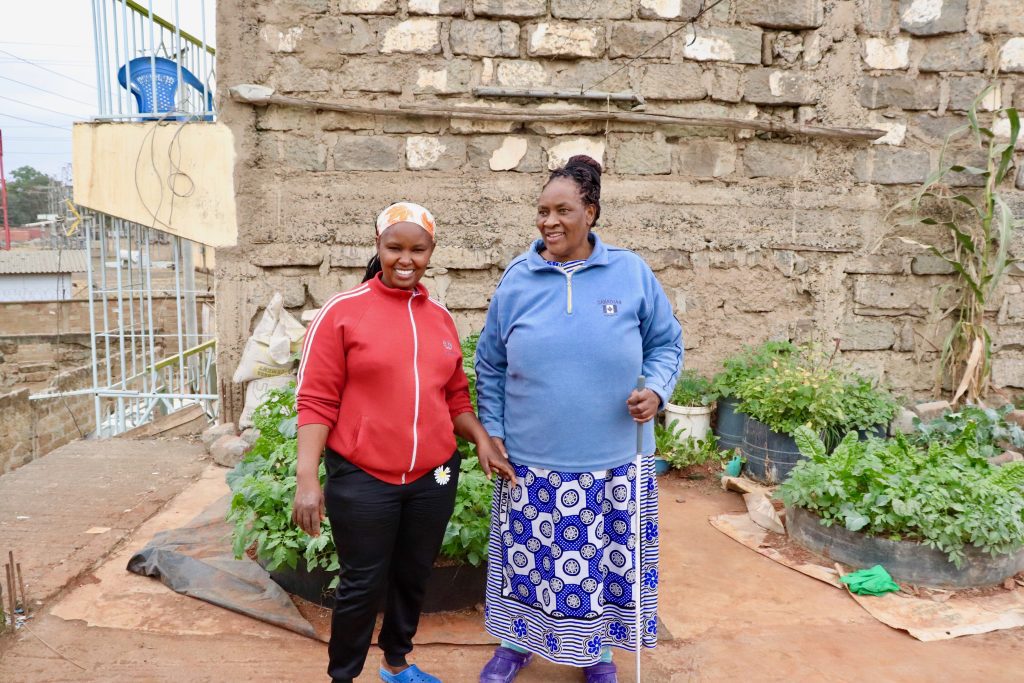
Susan (left) and one of her group members (right).
Written by Sarah Syptak on November 13, 2023.
The training Susan was involved in is an activity of the Women’s Spaces Project, an initiative of the Mazingira Institute and Rooftops Canada Abri-International, executed with the financial support of the Government of Canada through Global Affairs Canada.
